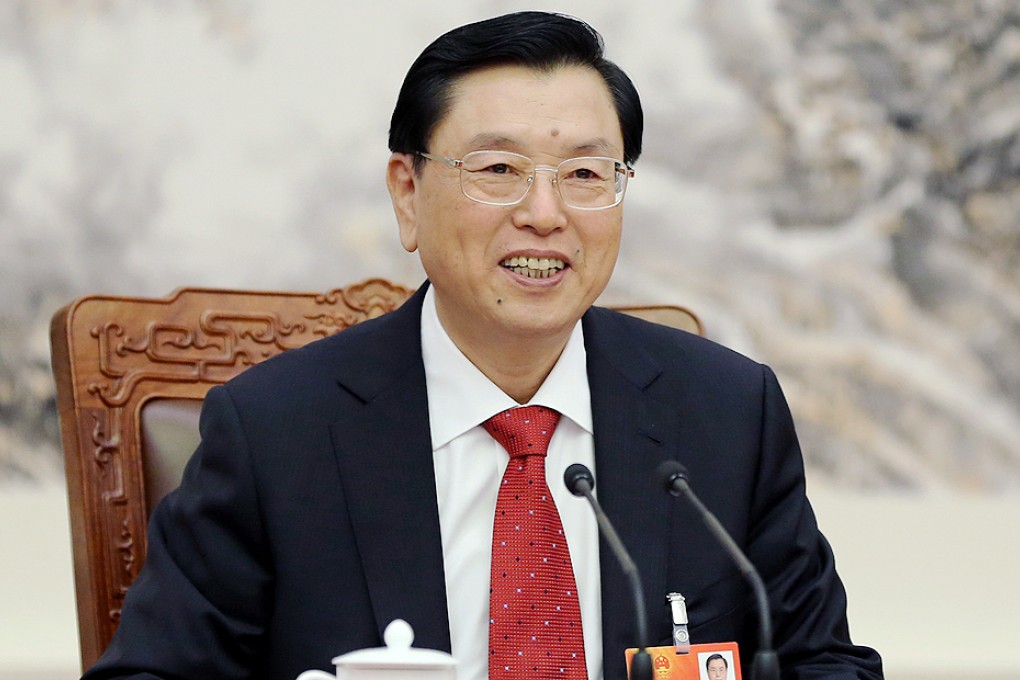Hong Kong's 2017 election is not the end of reform, hints NPC's Zhang Dejiang
Chairman's statement that the method of electing city's chief executive could change seen as latest strategy to win over moderates

There would be more room for compromise with Beijing if Hong Kong accepted that the method for electing its chief executive could be changed after universal suffrage was achieved in 2017, a Peking University academic said in March.
Many pan-democrats did not take Jiang Shigong's words seriously then.
But now, messages from the National People's Congress chairman Zhang Dejiang in his meetings with pro-establishment groups over the past few days are starting to sound similar to Jiang's suggestion.
NPC Standing Committee member Rita Fan Hsu Lai-tai, who met Zhang on Sunday, quoted him as saying democratic development in other countries went step by step.
She said she understood from Zhang that Hong Kong's democratic development would move forward after the city achieved "one man, one vote" in 2017.
Federation of Hong Kong Industries chairman Stanley Lau Chin-ho, who met Zhang on Saturday, quoted him as saying that it took 100 years for many countries to develop a mature political system and that democracy in Hong Kong should develop in a gradual, orderly manner.
Zhang's reminder that the 2017 chief executive election is not the endgame of democratic development in the city is seen as Beijing's latest strategy to win over moderate pan-democrats.